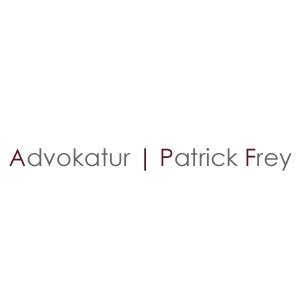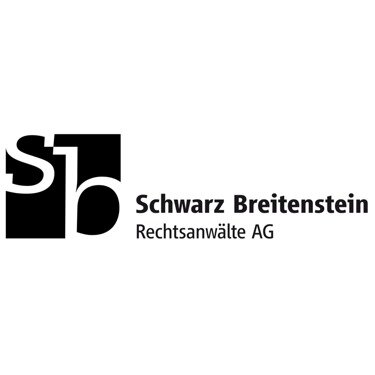Best Sustainable Finance Lawyers in Switzerland
Share your needs with us, get contacted by law firms.
Free. Takes 2 min.
Or refine your search by selecting a city:
List of the best lawyers in Switzerland
About Sustainable Finance Law in Switzerland
Sustainable Finance refers to financial services that consider environmental, social, and governance (ESG) criteria for investment decisions, resulting in sustainable economic growth and long-term value creation for clients and society. Switzerland has positioned itself as a global hub for sustainable finance, integrating sustainability into its robust financial sector. This move helps address global environmental challenges, align economic interests with sustainability objectives, and bolster the country's reputation for responsible finance.
Swiss laws and regulations are evolving to ensure transparency, prevent greenwashing, and support the progressive development of the sustainable finance sector. Providers of financial products, institutional investors, and companies interacting with the Swiss financial market are increasingly subject to sustainability-related obligations.
Why You May Need a Lawyer
Engaging a lawyer specializing in sustainable finance can be essential in several scenarios:
- Interpreting complex ESG regulations applicable to your business or investments.
- Structuring sustainable financial products such as green bonds, social impact funds, or ESG-linked loans.
- Ensuring compliance with disclosure requirements and sustainability reporting standards.
- Mitigating risks related to greenwashing allegations or regulatory investigations.
- Negotiating or drafting contracts with ESG considerations.
- Seeking advice on cross-border sustainable finance transactions affected by Swiss law.
- Advising on sustainable investment strategies for institutional or private clients.
Local Laws Overview
Switzerland’s sustainable finance landscape is shaped by a combination of domestic regulations, voluntary standards, and international developments. Key legal aspects include:
- The Swiss Financial Market Supervisory Authority (FINMA) requires greater transparency and the proper labeling of sustainable financial products to prevent greenwashing.
- Large public companies, banks, and insurers are obligated to disclose non-financial information, such as environmental and social impacts, beginning with the reporting year 2023.
- The Swiss Federal Council has published guidelines for sustainable finance to encourage responsible investing and adherence to international best practices.
- Swiss sustainable finance regulation is strongly influenced by the European Union's Sustainable Finance Disclosure Regulation (SFDR), Taxonomy Regulation, and the Paris Agreement.
- Voluntary initiatives such as the Swiss Climate Scores further encourage the integration of environmental factors in investment decisions.
- Companies and financial institutions must assess how their activities impact environmental and social goals and how they comply with evolving norms.
Understanding and complying with these requirements is crucial for operating legally and reputably in the Swiss financial market.
Frequently Asked Questions
What is sustainable finance?
Sustainable finance refers to financial services that integrate environmental, social, and governance criteria into business and investment decisions to promote long-term sustainability and societal benefits.
Are sustainable finance regulations in Switzerland mandatory or voluntary?
Some sustainable finance rules are mandatory, such as non-financial reporting obligations for large companies. Others, such as the Swiss Climate Scores, are voluntary but strongly encouraged by regulatory authorities.
How does Switzerland define "greenwashing"?
Greenwashing refers to the practice of making misleading or unsubstantiated claims about environmental performance or sustainability. Swiss authorities mandate clear, accurate, and transparent information about sustainable finance products to prevent this.
Which financial products are affected by sustainable finance laws?
Products such as mutual funds, ETFs, bonds, loans, and insurance contracts with sustainability features or claims are subject to sustainable finance considerations and disclosure requirements in Switzerland.
Do private banks and asset managers have to comply with sustainable finance rules?
Yes, if they offer sustainable products or manage assets under ESG mandates, they must comply with relevant transparency and due diligence standards.
Is Swiss sustainable finance regulation aligned with European Union standards?
While Switzerland is not part of the European Union, it aligns many rules and practices with EU standards, particularly regarding disclosure and taxonomy, to remain competitive and compliant in cross-border financial activity.
Who enforces sustainable finance regulations in Switzerland?
The Swiss Financial Market Supervisory Authority (FINMA) is the primary regulator for financial markets, including the enforcement of sustainable finance laws and guidelines.
What responsibilities do companies have regarding sustainability reporting?
Large public companies, banks, and insurers must report on environmental, social, employee, human rights, and anti-corruption matters. This includes qualitative and quantitative information on policies, outcomes, and risks.
Can individuals be held liable for breaches of sustainable finance law?
Yes, company directors, officers, and professionals can be personally liable if found to have intentionally misled investors or failed in their duties related to ESG disclosures and obligations.
What should investors look out for when choosing sustainable investment products?
Investors should check for transparency in sustainability objectives, credible ESG strategies, third-party certification or labeling, and ensure that disclosures comply with Swiss regulations.
Additional Resources
People seeking legal advice or wishing to deepen their knowledge in sustainable finance in Switzerland may contact or refer to the following:
- Swiss Financial Market Supervisory Authority (FINMA): Regulatory guidance and updates
- Swiss Sustainable Finance (SSF): Industry association for sustainable investment and education
- Federal Office for the Environment (FOEN): Information on the Swiss Federal Council's sustainable finance measures
- Swiss Banking Association: Guidelines and recommendations for sustainable financial services
- Swiss Climate Scores: Framework for sustainability disclosure in asset management
- Industry events, workshops, and legal seminars on sustainable finance topics in Switzerland
Next Steps
If you require legal assistance in sustainable finance, take the following steps:
- Identify your specific needs, such as compliance review, product structuring, or dispute resolution.
- Collect relevant documentation including investment materials, contracts, and disclosures.
- Seek out qualified lawyers or law firms in Switzerland with expertise in sustainable finance, ESG regulation, and financial market law.
- Book a consultation to discuss your situation, clarify legal options, and understand possible risks and obligations.
- Stay informed about updates in Swiss and international sustainable finance rules as they evolve rapidly.
Professional legal advice will help ensure that your financial activities are both compliant with Swiss law and aligned with evolving international standards for sustainability.
Lawzana helps you find the best lawyers and law firms in Switzerland through a curated and pre-screened list of qualified legal professionals. Our platform offers rankings and detailed profiles of attorneys and law firms, allowing you to compare based on practice areas, including Sustainable Finance, experience, and client feedback.
Each profile includes a description of the firm's areas of practice, client reviews, team members and partners, year of establishment, spoken languages, office locations, contact information, social media presence, and any published articles or resources. Most firms on our platform speak English and are experienced in both local and international legal matters.
Get a quote from top-rated law firms in Switzerland — quickly, securely, and without unnecessary hassle.
Disclaimer:
The information provided on this page is for general informational purposes only and does not constitute legal advice. While we strive to ensure the accuracy and relevance of the content, legal information may change over time, and interpretations of the law can vary. You should always consult with a qualified legal professional for advice specific to your situation.
We disclaim all liability for actions taken or not taken based on the content of this page. If you believe any information is incorrect or outdated, please contact us, and we will review and update it where appropriate.
Browse sustainable finance law firms by city in Switzerland
Refine your search by selecting a city.
















